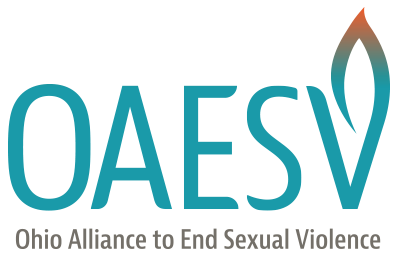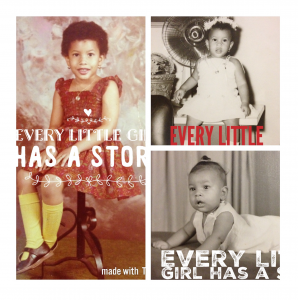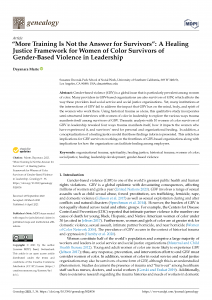
- 9:00 am - 9:20 am - Opening Session
- 9:20 am - 10:25 am - Keynote Presentation
- 10:25 am - 10:35 am - Break
- 10:35 am -12:05 pm - Workshop Session A
- 12:05 pm - 1:05 pm - Lunch
- 1:05 pm - 1:35 pm - Highlight Session
- 1:35 pm -3:05 pm - Workshop Session B
- 3:05 pm - 3:15 pm - Break
- 3:15 pm -4:45 pm - Workshop Session C
- 4:45 pm - 5:00 pm - Closing Session
Land Acknowledgement Information
Land acknowledgements are recognition of the Native American/First Nations/Indigenous Peoples and their ancestral and contemporary land, prior to their forced removal. In speaking these acknowledgements, it is necessary to explore the current impact of colonization and systemic oppression on Indigenous Peoples; colonization is an ongoing process and we are present participants on stolen land.
There are currently no federally recognized Native American and Indigenous tribes in the State of Ohio, but a number of tribal nations in Oklahoma, Wisconsin, Michigan, North Dakota and Minnesota have ancestral connections to Ohio land. Among the Historic Indigenous Tribes in Ohio were the Shawnee Tribe, the Chippewa Tribe, the Ojibwa (Oh-jib-way) Tribe, the Delaware Tribe, the Wyandot Tribe, the Eel River Tribe, the Kaskaskia Tribe, the Iroquois Tribe, the Miami Tribe, the Munsee Tribe, the Seneca-Cayuga Tribe, the Ottawa Tribe, the Piankashaw Tribe, the Sauk Tribe, the Potawatomi Tribe, the Seneca Tribe, and the Wea (Wee) Tribe. We stand in solidarity with the Indigenous Peoples who are the traditional stewards of this land and water. We acknowledge the history of oppression and genocide that brought us here, and our place within that history. We honor the Indigenous Peoples who lived and cared for the land before us, the Indigenous Peoples who reside in Ohio today, and the generations to come.
As we gather this week to restore our roots in accountability and transformative justice, we must reflect on the connection between sexual violence as a tool of colonialism, and of oppression, that continues to this day. There is an epidemic of missing and murdered Indigenous women and girls with deep, intersectional roots including white supremacy and misogyny. Land acknowledgements are also a call to action: What will you commit to doing and learning today? How will you sustain this work? Please reflect on what this land acknowledgement means to you, and find ways to support Indigenous organizations in Ohio.
Orgs:
- Cleveland American Indian Movement
- Lake Erie Native American Council
- Myaamia Center through Miami University
- The Greater Cincinnati Native American Coalition
- The Miami Valley Council for Native Americans
- The Native American Indian Center of Central Ohio
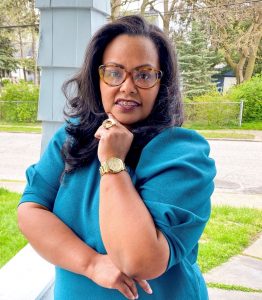
Rosa Beltré, OAESV Executive Director
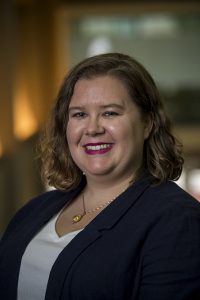
Caitlin Burke, OAESV Director of Prevention
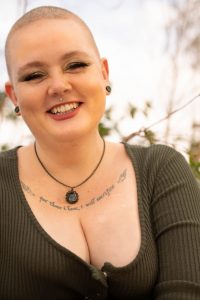
Kasie Holmes, Registered Mental Health Counseling Intern & Founder of Radical and Restorative Therapy
Click these images to access excerpts of Dr. Marte’s writing.
Dr. Dayanara Marte (also known as Dr. Dee) is a human rights activist who has been actively involved in the sexual assault, domestic violence, mental and reproductive health and immigrant movement for over 15 years. Upcoming author of a transformational memoir, Dayanara works globally with a wide array of community-based institutions, cultural and social justice organizations, executive directors, service providers and first responders providing holistic trainings focused on preventative and post trauma healing to achieve extraordinary breakthrough results in personal and organizational trauma, resiliency and sustainability. She began her career in 1998 in the South Bronx creating programs that support young and adult women and the LGBTQ community reclaim their voice, mind, body, and spirit from the impact of oppression, trauma, violence, poverty and neglect towards empowerment, healing & transformation.
She is nationally known for her work as a trauma prevention specialist, internalized oppression healer, trainer & facilitator in emotional release to let go of the dis-ease of oppression and violence that manifest in our bodies as a result of institutional racism, homophobia, xenophobia, classism, & sexism. Dayanara envisions a world where women powerfully exist in the face of war, injustice, sexual assault, child sexual abuse, incest, rape, relationship/partner abuse, & domestic violence within our homes, our organizations & within movements.
Dayanara is working on her Doctorate of Social Work at the University of Southern California. Her work is focused the impact gender based violence has on women in leadership positions of social service and social justice organizations. She is also creating The Global Center on Healing, Trauma, and Social Justice (GCHTSJ) focusing specifically on the individual impact that gender-based violence has on women of color in leadership positions and the organizational culture of trauma it creates.
Utilizing a holistic, culturally specific and trauma-informed model, Dr. Dee will build the emotional and spiritual intelligence of those most at risk of gender-based violence, women of color, on the frontlines and their health and well-being needs related to their experiences of abuse and neglect and as a result build organizational sustainability.
Dayanara has joined the United Nations 2030 agenda, and the American Academy of Social Work and Social Welfare 12 Grand Challenges. Their combined goal is to eradicate one of the greatest public health and human rights violations of women and girls all over the world. Also, ending gender-based violence, as it is the most impactful injustice that follows girls and women throughout their lifetime.
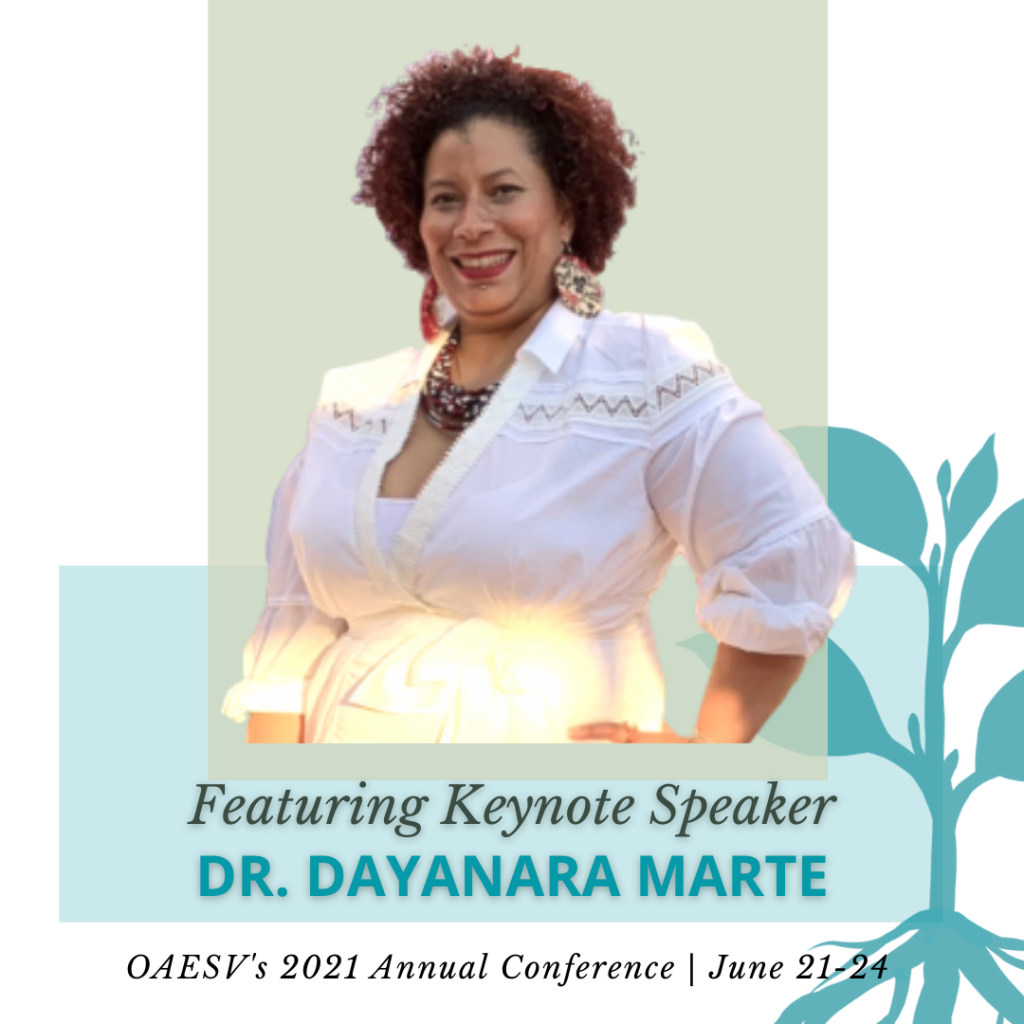
Workshop #1 - Innovating Prevention in the Digital Age
Click here for the PDF of this presentation.
During the last year, many in the prevention field have had to radically shift not only the content of our curricula but also the way we present our curricula to adapt to the unprecedented environment surrounding COVID-19. Knowing that these new communication standards within technology have altered the traditional means of prevention education, how can we successfully apply these new techniques and distribution channels into our curriculums seamlessly and successfully? Developing new ways to utilize technology and digital platforms is an invaluable skill we hope to pass on through this workshop while continuing to work on a framework of inclusion, anti-oppression, and accessibility.
Resources from the workshop:
- Favorite TikTok accounts for Prevention (some are kid-friendly while others aren’t)
- @domesticblisters
- @lackofimpulsecontrol
- @kami_orange
- @benjy_lookbook
- @odesso.laurenzo
- @sunnymegatron
- @the.attitude.tok
- @nicoleciravolo (specifically their Ms. Connie series)
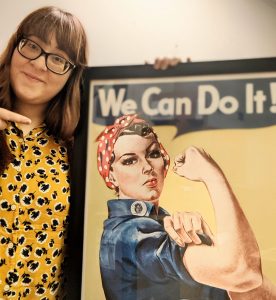
Megan Garrison is a licensed Sexual Violence Preventionist at YWCA Dayton and the curriculum developer for the Sexual Violence Prevention course, Advocate Training course, Teen Dating Violence Workshop, GemCity Safe Bars program, and the Psycho-Educational support group for survivors of sexual violence. Prior to her work at YWCA Dayton, Megan spent her career living and working abroad in the capacity of an educator through Peace Corps in Mongolia and then independently in Ethiopia and Somaliland, before returning to serve as an AmeriCorps VISTA. She is a University of Dayton alum with a bachelors in Journalism and American Studies and grew up on a goat farm in a small rural community in Texas.
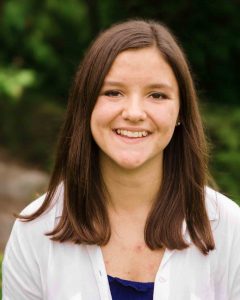 Emily Durand (they/she) is a Program Coordinator with the Mount Sinai Sexual Assault and Violence Intervention (SAVI) Program. They provide sexual and relationship violence prevention education to NYC college students and the greater community. Emily began their work over five years ago at Syracuse University, where they earned a Bachelor’s degree in Selected Studies in Education with an English major and Health and Wellness minor. Emily is proud of her peer education, advocacy, and trauma-informed care roots, and she is endlessly appreciative of the mentors who have gotten them here today.
Emily Durand (they/she) is a Program Coordinator with the Mount Sinai Sexual Assault and Violence Intervention (SAVI) Program. They provide sexual and relationship violence prevention education to NYC college students and the greater community. Emily began their work over five years ago at Syracuse University, where they earned a Bachelor’s degree in Selected Studies in Education with an English major and Health and Wellness minor. Emily is proud of her peer education, advocacy, and trauma-informed care roots, and she is endlessly appreciative of the mentors who have gotten them here today.
Workshop #2 - Queer Language: Discovering the Roots of LGBTQ+ Language
Click here for the PDF of this presentation.
This workshop will talk about the etymology of LGBTQ+ language and the importance of words and their histories. We will engage an intersectional lens in order to discuss LGBTQ+ terms, definitions, and origins, delving into how language can be used by both the oppressor as a form of violence as well as the oppressed as an act of resistance. It is critical that we understand both the roots of language as well as the notion that since language is ever-evolving our use of language in the present creates “roots” for the future. We will consider that much of the language established by the LGBTQ+ community was coded vernacular developed for survival. Additionally, we will ponder the use of LGBTQ+ language in mainstream culture and why it can be seen as both positive and negative.
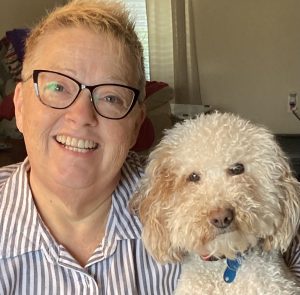
Carolyn Wilson BA ed. (she/her/hers), University of Michigan, BRAVO (Buckeye Region Anti-Violence Organization, A Division of Equitas Health)
Carolyn, recently moved to Columbus after retiring from her 30-year career as a high school educator. She has been working with BRAVO for the past four years as a SafeZone trainer and recently became the Training and Technical Assistance coordinator. Previously, Carolyn was an active member of the planning committee for Take Back the Night, Toledo, The Women of the World Symposium, and the Board of Directors for Equality Toledo. She has also served as a Lucas County CASA and is a member of the National Foster Parent Association, Committee on LGBQT Youth and Families. When not working, Carolyn spends time with her partner and dog, enjoying the great outdoors, reading, putting together puzzles, and cooking. Xena, her newest puppy, is a certified emotional support animal and joins her at all her trainings and adventures.
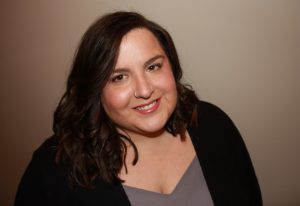 Alexandra C. Anastasia Outreach and Training Specialist Buckeye Region Anti-Violence Organization (BRAVO)
Alexandra C. Anastasia Outreach and Training Specialist Buckeye Region Anti-Violence Organization (BRAVO)
Alex received her B.A. in Women’s and Gender Studies and Political Science from Rutgers University in 2011. Upon completion of her undergraduate degree, Alex began working full-time for the Center for Women’s Global Leadership (CWGL) in New Jersey. In 2013 Alex moved to Columbus, OH to pursue a graduate degree, and received a M.A. in Women’s, Gender and Sexuality Studies from Ohio State in 2015. Prior to joining BRAVO Alex was a Teaching Assistant in the Department of English at George Washington University in Washington, DC and an Adjunct Instructor for the Department of Women’s, Gender and Sexuality Studies at Ohio State Marion. Alex brings to BRAVO a commitment to merge the theory of academic work with the practice of grassroots activism and community engagement.
Dr. Shemariah J. Arki identifies as an educator, an activist and an organizer. Currently serving as a professor in the department of Pan-African Studies and as the interim director of the Center for Pan African Culture, both at Kent State University, she is an intersectional feminist scholar with expert knowledge and skills to develop, implement, facilitate and evaluate curricula that promote institutional equity, communication, and access for traditionally marginalized students and families.
Dr. Shemariah Arki will be giving a brief overview of the statewide consultant work she and her organization have been developing over the past 2 years. She will discuss the state of the Statewide Prevention Action Plan, which is focusing on bridging work done across the state from the health department, OAESV, and the state domestic violence coalition. This highlight will be followed up with a more interactive workshop later the same afternoon.
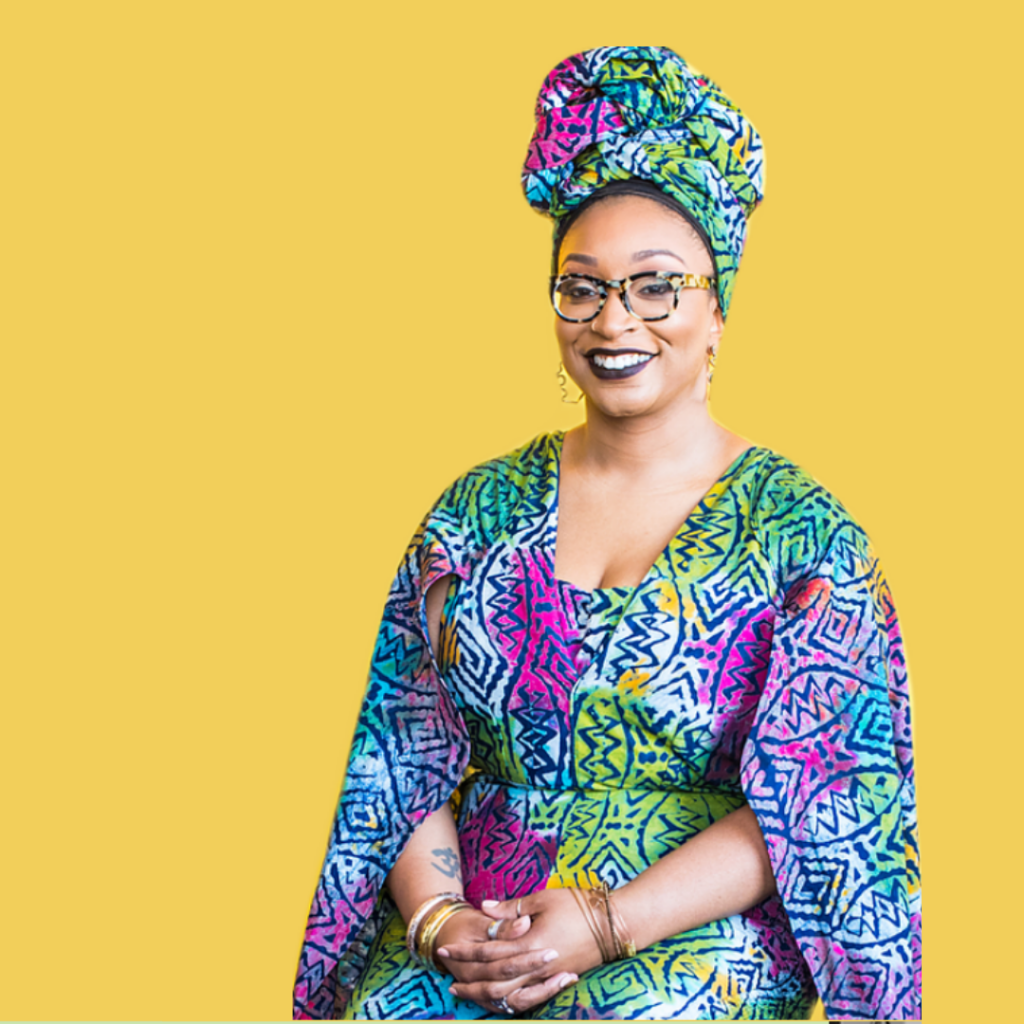
Workshop #3 - Cultivating Affirmation and Belonging for LGBTQ+ Youth
Click here for the PDF of this presentation.
Click here for the PDF of “Action Steps for Youth-Serving Professionals.”
Click here for the PDF of “Imagining Transgender (Youth).”
Examine statistics related to discrimination within schools and risks that LGBTQIA+ youth face on a day-to-day basis, then discuss ways that professionals can improve the general climate of schools, community centers, organizations, agencies, counseling offices, etc. through various strategies from simple word choice to school/district/organizational policy change.
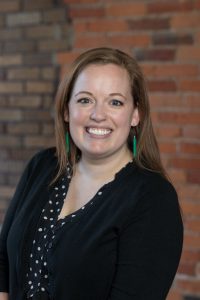
Amanda Erickson has worked with Kaleidoscope Youth Center since 2017, focusing on advocating for LGBTQIA+ youth across Ohio through education for youth-serving professionals including teachers, social workers, and more. Amanda has a Bachelor of Science in Education from Bowling Green State University, and spent two years post-college as a Peace Corps Volunteer educating teachers in Vanuatu, in the South Pacific. Since returning to the US, she has worked in education and programming in the local nonprofit sector.
Workshop #4 - Finding a Place for Faith in Sexual Violence Advocacy
Click here for the PDF of this presentation.
Does faith have a place in our work with advocating for sexual assault survivors? For many reasons such as shame, fear, and the stigma of being a sexual assault survivor in our country, rape is the most underreported crime in America. After being sexually assaulted, many survivors lose faith that they once had because someone they previously held confidence or trust in broke that trust. As advocates, we have the ability to be a light in their lives and give them reason to have faith again, first and foremost by believing them. This workshop will explore how applying principles of faith and love can bring safe spaces and healing for those who have been sexually assaulted. Emily hopes to transform the way we look at applying faith-based concepts in our advocacy work and how it can make this world a better place for survivors.
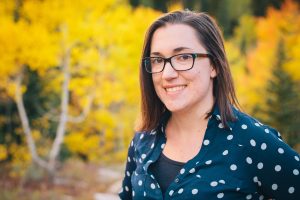
Emily Bernath is the award-winning author of the Broken Lenses series. As a rape survivor herself, her life quickly hit rock bottom, with constant feelings of both hopelessness and worthlessness. In being open about her experience, it became apparent to her how many other people experience similar feelings. Through rediscovering her faith, Emily has found freedom from the condemnation in this world. She desires to help others find that same freedom, and embraces each opportunity she gets to do so. Emily serves on the board of Reveal to Heal, a non-profit dedicated to preventing all forms of child sexual abuse and helping survivors heal from its effects. When she’s not writing, she spends her time tutoring, volunteering with her church’s youth group, playing softball, and making latte art.
Workshop #5 - Title IX Q&A with OAESV’s Legal Team and the Ohio Survivor Legal Assistance Clinic
Have questions about Title IX and how to assist survivor’s through a Title IX process? Join OAESV’s Legal Team and the Ohio Survivor Legal Assistance Clinic to learn more about Title IX. The Legal Team and the Clinic will answer some frequently asked questions and provide a time to ask questions of leadership, legal professionals, and advocates.
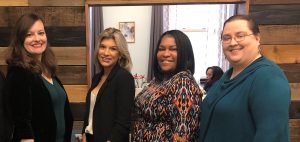
The OAESV Legal Team & the Ohio Survivors Legal Assistance Clinic are comprised of Camille Crary, Kandra Roberts, April Carter, and Becca Getson. Learn more about them by clicking here.
Workshop #6 - Bridging our Efforts: Update on Ohio’s Prevention State Acton Plan
Click here for the PDF of this presentation.
Are you fired up and ready to work towards change? Does it feel like you are the only one in your workplace? Not sure where to begin? Join us for this session as we share updates on the Ohio Action Plan for prevention orgs. After sharing out our priority areas and goals, we will have an open discussion, inviting practitioners to contribute to the strategies and key activities of the plan, to be completed by January 2022. Participants will: Review current state action plan in process Discuss goals, strategies and key areas of improvement Provide high level feedback from those who work closest with our most marginalized populations Learn of professional development opportunities to contribute to and learn from the plan Be introduced to a DEII (diversity, equity, inclusion, intersectionality) model that they can begin to utilize in their own work.
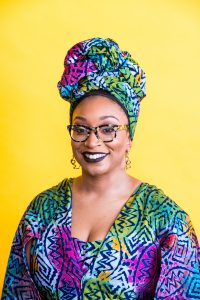
Dr. Shemariah J. Arki identifies as an educator, an activist and an organizer. Currently serving as a professor in the department of Pan-African Studies and as the interim director of the Center for Pan African Culture, both at Kent State University, she is an intersectional feminist scholar with expert knowledge and skills to develop, implement, facilitate and evaluate curricula that promote institutional equity, communication, and access for traditionally marginalized students and families.
Workshop #7 - Restorative Self-Care Practices: Addressing Secondary Trauma Exposure
Click here for the PDF of this presentation.
This experiential workshop is designed for frontline advocates to bolster vital knowledge about the vagus nerve, breath, and movement in addressing secondary trauma exposure. Practical strategies weaved in through self-discovery activities will encourage new advocates and seasoned advocates to become accountable for their self-care and overall well-being. Advocates will explore secondary trauma exposure concepts to gain awareness about how to be well in their services to child and adult survivors. You will have an invitation to practice techniques such as breathing, movement, and self-care strategies to enhance your health. An overview of prevention concepts in resiliency, understanding the vagus nerve in relation to breath and regulation, and using nature and gratitude as wellness approaches. Bring a blanket or stay in your chair to experience the benefits of simple activities. Consider bringing markers, paper, and art supplies you’d like to use as we will use these in an activity.
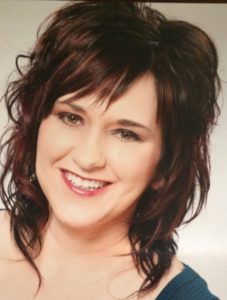
Sonia D. Ferencik, LISW-S, RA, increases awareness of how lived experiences of exposure to a batterer as a parent impact the lives of children, teens, and their parents. Her approach is individual, survivor-focused, intertwined with understanding the complexities of trauma responses and how batterers manipulate relationships with their children, intimate partners, and helpers. Her work centers on creating trauma-informed programming by enhancing an advocate’s intervention skills, responses and supporting helpers with secondary traumatic exposure. She possesses over 35 years of working in domestic violence shelters, community-based group work, and advocacy. She is an Advanced Certified Trauma Practitioner from Starr Commonwealth, a Registered Advocate with Senior Standing. She presently works at the Ohio Domestic Violence Network as the Youth Advocacy & Trauma-Informed Services Coordinator. She is the co-author of ODVN’s Trauma-Informed Approaches: Promising Practices and Protocols for Ohio’s Domestic Violence Programs and the Ohio Children’s Trust Fund’s Breaking the Cycle Manual.
Workshop #8 - From Victim to Survivor: Music as a Tool for Healing and Empowerment
Click here for the PDF of this presentation.
Click here for the PDF of “How to Make Music Activities Accessible.”
The field of interpersonal violence has largely relied on white-western models of care for survivors dealing with trauma. This workshop is rooted in decolonizing care principles and highlights a method of care humans have utilized for ages across all cultures; music. The workshop allows participants to explore musical exercises and ties the value of storytelling across a continuum of healing, empowerment, and prevention.
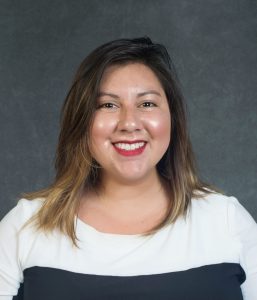
Veronica Quinonez (she/her/hers) holds a Masters of Arts degree in Conflict Resolution from Georgetown University and a Bachelors in Psychology and International Relations from Virginia Commonwealth University. She is currently working as Community and Education Program Manager at the Jewish Coalition against Domestic Abuse (JCADA). She previously managed the CDC ‘DELTA’ grant on violence prevention initiatives for the entire state of Tennessee. Her statewide leadership focused on ACEs, economic and policy reform, and curriculum development/consultation with Universities and Colleges. She educated college students as a Prevention Educator and Victim Resource Specialist at Vanderbilt University and served as the Gender Violence Program Coordinator at Georgetown University. Veronica also has 4 years of victim services experience including serving as a Safe Helpline Shift Manager for the Rape Abuse Incest National Network (RAINN) in Washington, D.C. Her focus is on decolonizing and anti-oppression approaches to addressing interpersonal violence.
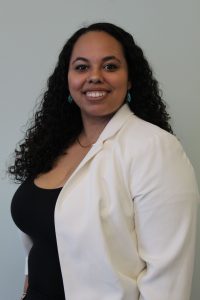
Olivia Montgomery, OAESV Training & TA Coordinator for Inclusion & Equity
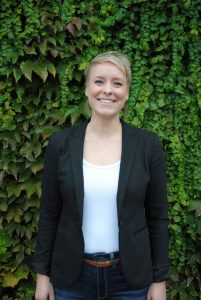
Ryn Farmer, Director of Day One at Crime Victim Services and OAESV Board Vice President
Funding for this conference was made possible in part by the Centers for Disease Control and Prevention as well as by the Rape Crisis Funding awarded by the Ohio Governor’s office, administered by the Ohio Attorney General’s Office. The views expressed in written conference materials or publications and by speakers or moderators do not necessarily reflect the official policies of the Department of Health and Human Services or of the Ohio Attorney General’s Office; nor does mention of trade names, commercial practices, or organizations imply endorsement by the U.S. Government.
